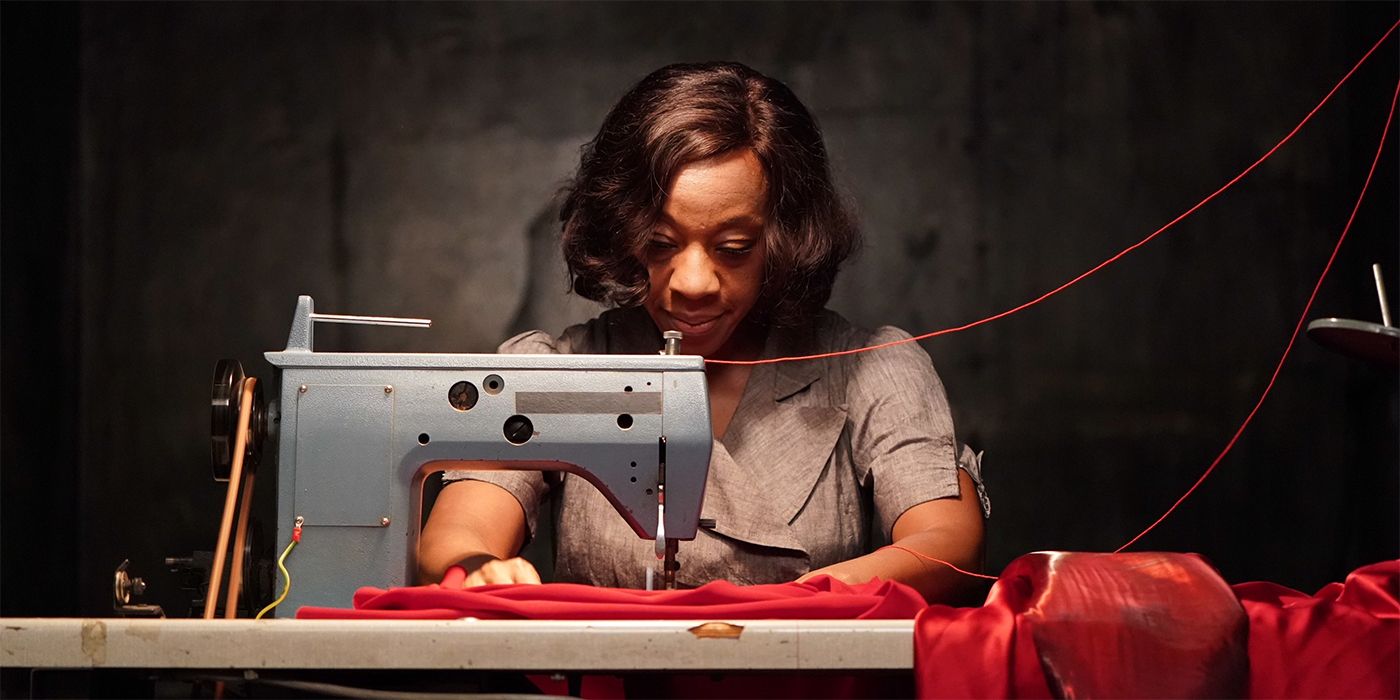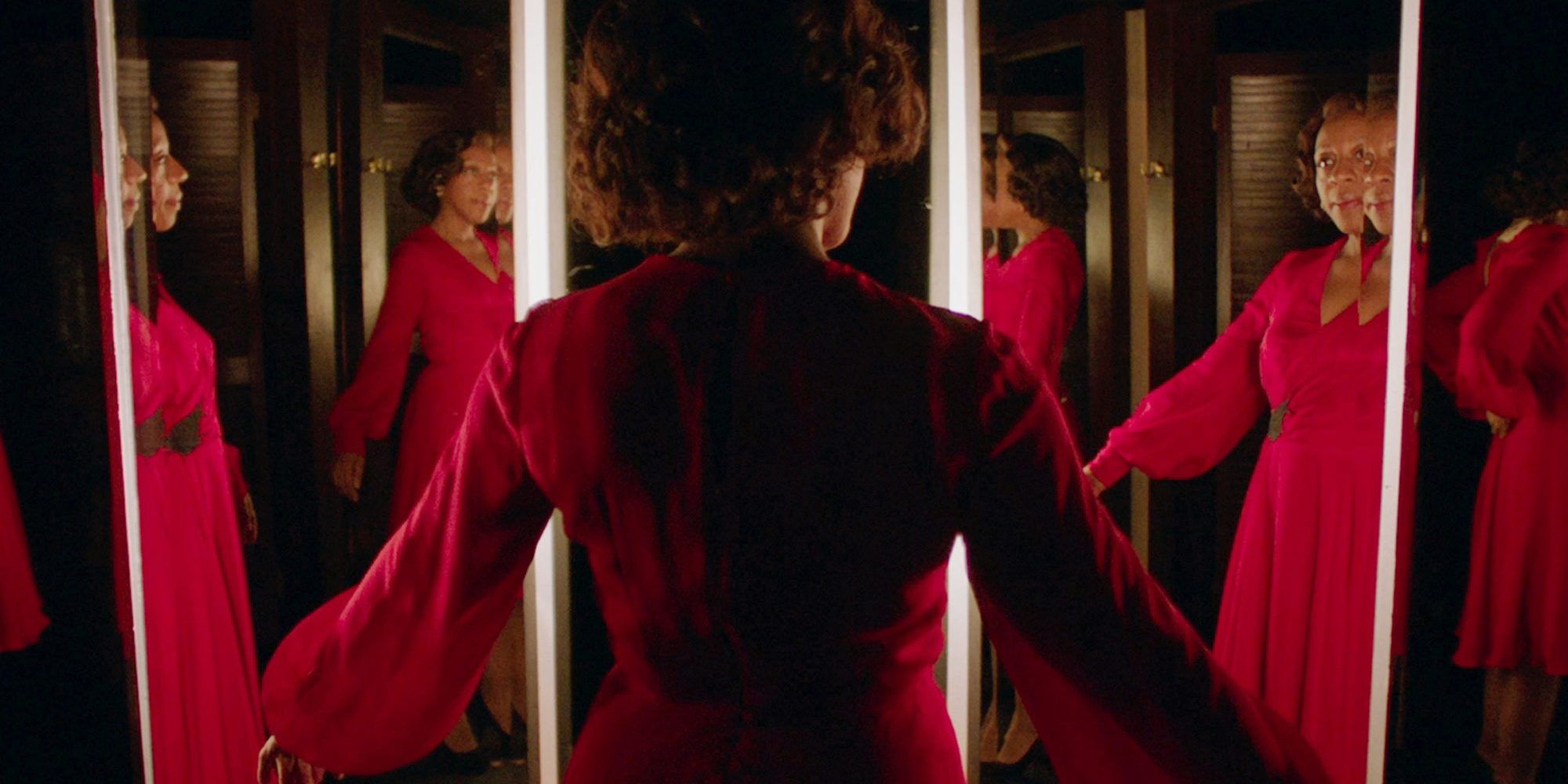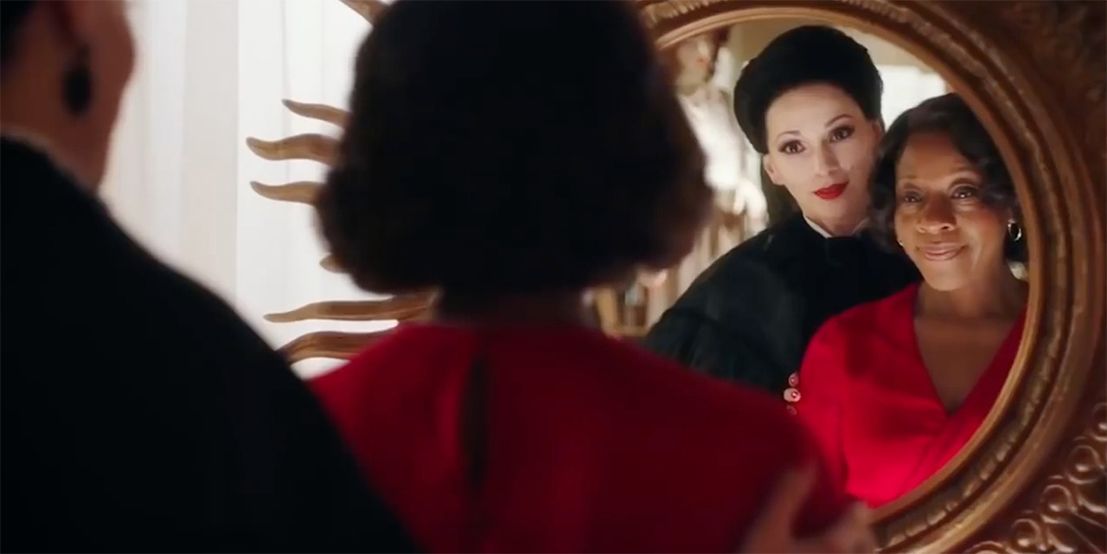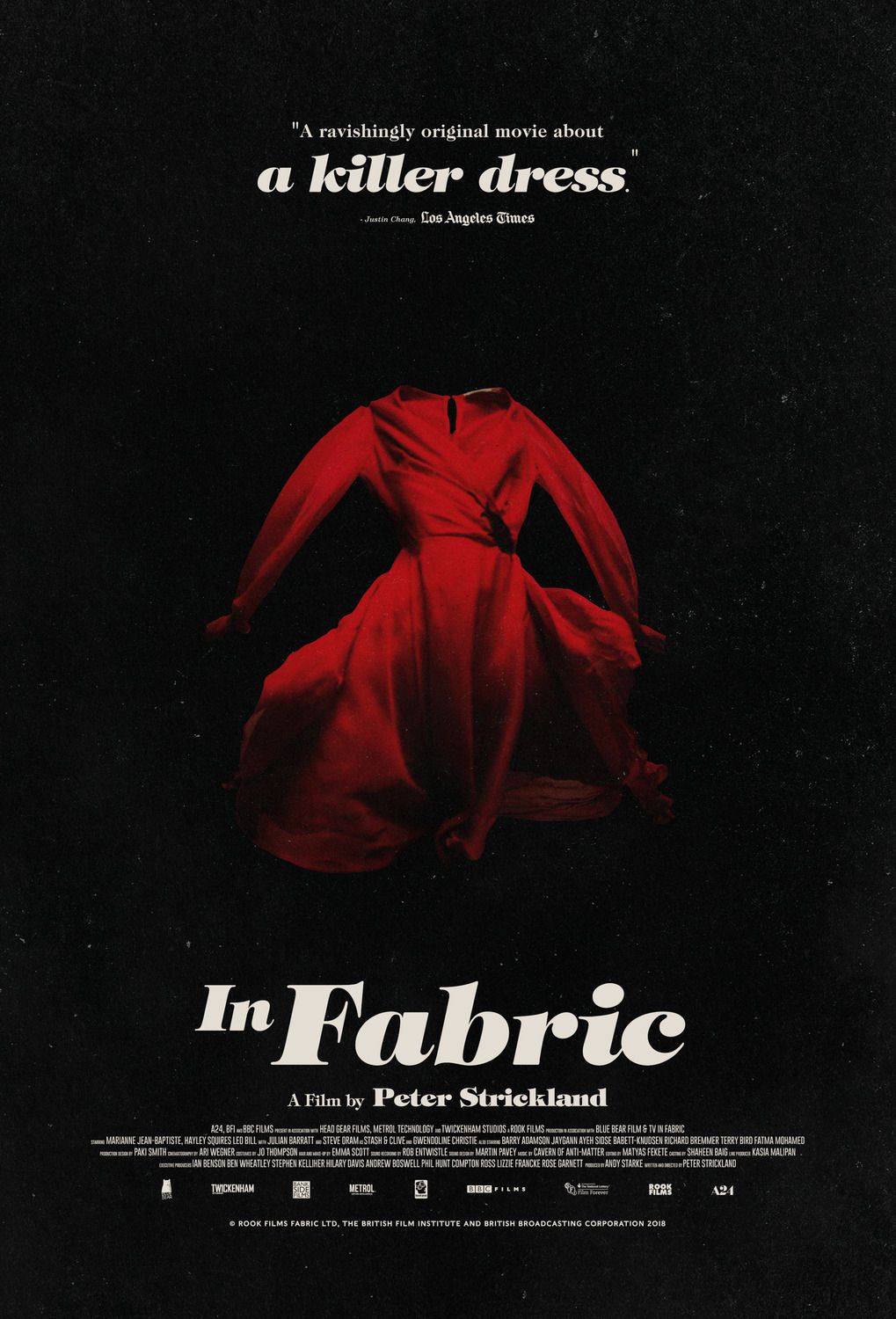Director Peter Strickland, known for his comically dark and richly stylized films, delivers another surreal thriller with In Fabric. This tale of a haunted dress and all that befalls those who wear it is grounded early on by acclaimed actress Marianne Jean-Baptiste, who brings an incredible pathos to her role as a lonely banker named Sheila. The performer shared her experience on set in an interview with Screen Rant, explaining why she was drawn to the film in the first place and how the visual feast came together in under a month.
In Fabric was a fascinating film. What was it like for you on set? Because all the visual storytelling must have been a very different experience for you while filming.
Marianne Jean-Baptiste: Yes, because you just don't see all that stuff when you're on the set. I found the department store to be fascinating. They have really interesting-looking things in there, but you just don't get the same experience of seeing it actually put together. You had to feel while you were doing that it was going to look amazing.
I mean, I don’t like watching myself, per se. Whenever there was any playback, I wouldn't watch. There was one part that Peter [Strickland, the director] made me watch because he said, “Look, this is why you’re doing it like this. Because you have to see it from this position,” and that was that. A lot of it was following instincts.
How did you first become a part of the project, and how much of Strickland’s work were you familiar with at that point?
Marianne Jean-Baptiste: Well, he sent the script to my agent in England, who is a big fan of his. My agent sent it to me and said, “Read this.” Then he said, “No, watch these first,” and he sent me links to these films. But I had already read it and had already said, “This is interesting. Very different.”
And then I watched Berberian Sound Studio, and I was like, “I’m in. I want to work with this guy.” It’s bizarre, his stuff. But I like it.
As you’ve said, the story is very bizarre and surreal. But you gave Sheila such a grounded energy. How did you connect with her and what did you find most relatable about her?
Marianne Jean-Baptiste: What I find relatable about her, I think, is the sense of longing. When people end a relationship like hers, that lasted for so long, you become defined by your marriage, I suppose. Then when that ends, you’d be lost.
When we meet her in the film, it's about her trying to find herself again, and she’s trying to assert herself and find love. She’s realizing that she deserves to have that in her life. Her son’s getting older and dating some older woman, who’s a bit of a nightmare, and she kind of feels like he'll be gone soon. So, she’s thinking, “What about me?” And I found that quite relatable.
Speaking of the older woman, what was it like working with Gwendoline Christie? Can you talk about that antagonist dynamic?
Marianne Jean-Baptiste: We got on like a house on fire. But, yeah, it's very interesting playing with her, and that dynamic of this older woman who kind of lets herself into the house and takes liberties. Because my thing was, what makes Sheila put up with it?
And it’s really about her son. I’ve lost my husband, and I don't want to lose my son, so I kind of have to play along with this. It’s better to have him here at the house with her instead of going off, because then I'll be on my own. Basically, that's why she puts up with Gwen and her behavior.
I loved how In Fabric would go back and forth between the chilling, haunting dress sequences, and then these quotidian and comedic encounters such as the ones with Gwen and your bumbling bosses. What was it navigating those shifting tones?
Marianne Jean-Baptiste: Well, basically, Sheila’s on the track. She's in the real world, and everybody else is a bit bonkers.
It’s bizarre, but I think it's that interesting thing whereby everybody believes themselves to be sane. The bosses absolutely believe in the fact that you've got a weak handshake, and we're going to help you work on that. Because that's the most important thing right now. She's looking at them like, “Are you kidding me?” Do you know what I mean? Really, my handshake? Because this big boss decides I've got to work on that, and then they bring out this pamphlet...
And I remember working in places like that, where there were really silly rules that you kind of have to adhere to.
Was there a scene you had the most fun working on, or that was the hardest to stay in character for?
Marianne Jean-Baptiste: Probably the bloody scenes with the bosses. When they asked her about her dream, and one of the bosses makes a comment that’s just out of nowhere. It was something like, “Racist!” And it was just so not right.
The scenes with them were probably the hardest to keep a straight face.
It's not usual to have the director also be the writer of the work. How does that change your experience as a performer to have the author on hand?
Marianne Jean-Baptiste: You know, I didn't think about it when we were working together. We just naturally sort of get on with it and collaborate. I mean, I would keep pressing him constantly about what time period we were in. After a while, it became a joke. “Are we in the 70s, 80s, 50s?” And then I would start teasing him. “Okay, this is Strickland Land, and there is no time period.”
He’s very collaborative, though. I didn't feel that it was a problem in any way having him as the writer. And because the stuff is so specific, you just go with it. You wouldn’t want to change much of anything, really, because it's so bizarre.
You've been doing several TV roles lately. What are the biggest advantages and disadvantages of both film and television?
Marianne Jean-Baptiste: What I like about film is the continuity. You get one director, and that's it. I think you also get the opportunity to take your time. In the best case scenarios, you get the opportunity to rehearse, and that is great.
In Fabric, though, was done in a month. How did that change things?
Marianne Jean-Baptiste: Yeah, we didn't have much time at all. You were very nervous about making your day, because there's so much. It's very ambitious to try and make this film in such a short space of time, but I think everybody rallied because they believed in Peter’s ability.
We rehearsed the scenes and discussed certain aspects. So, it didn’t feel too rushed. I mean, it would have been nice to have a bit longer to play. But, we did the best with what we had.
What would you took away from this In Fabric experience?
Marianne Jean-Baptiste: What I’ve taken away from In Fabric is that I’ve always enjoyed the process. I’ve always said this about theater: I love rehearsals. If a job were just rehearsals, and no performance, I’d be really happy. Because it's all about creating and exploring the character for me. That’s what I find most rewarding.
And with In Fabric, it just felt lovely to jump into something and have it not be result-based. For it just to be about experiencing and being there, and doing something new with someone who doesn't necessarily fit into any kind of category. He's not wanting to be like anybody else. He's just who he is and he has the vision. And for me, it was a really beautiful thing to be around that energy.
What's coming up next for you, in either films or television?
Marianne Jean-Baptiste: What comes next is a Netflix television show called Soundtrack. I think it premieres early December or mid-December, I'm not absolutely sure. But that's what it is.
In Fabric arrives in theaters December 6 and on demand December 10.




